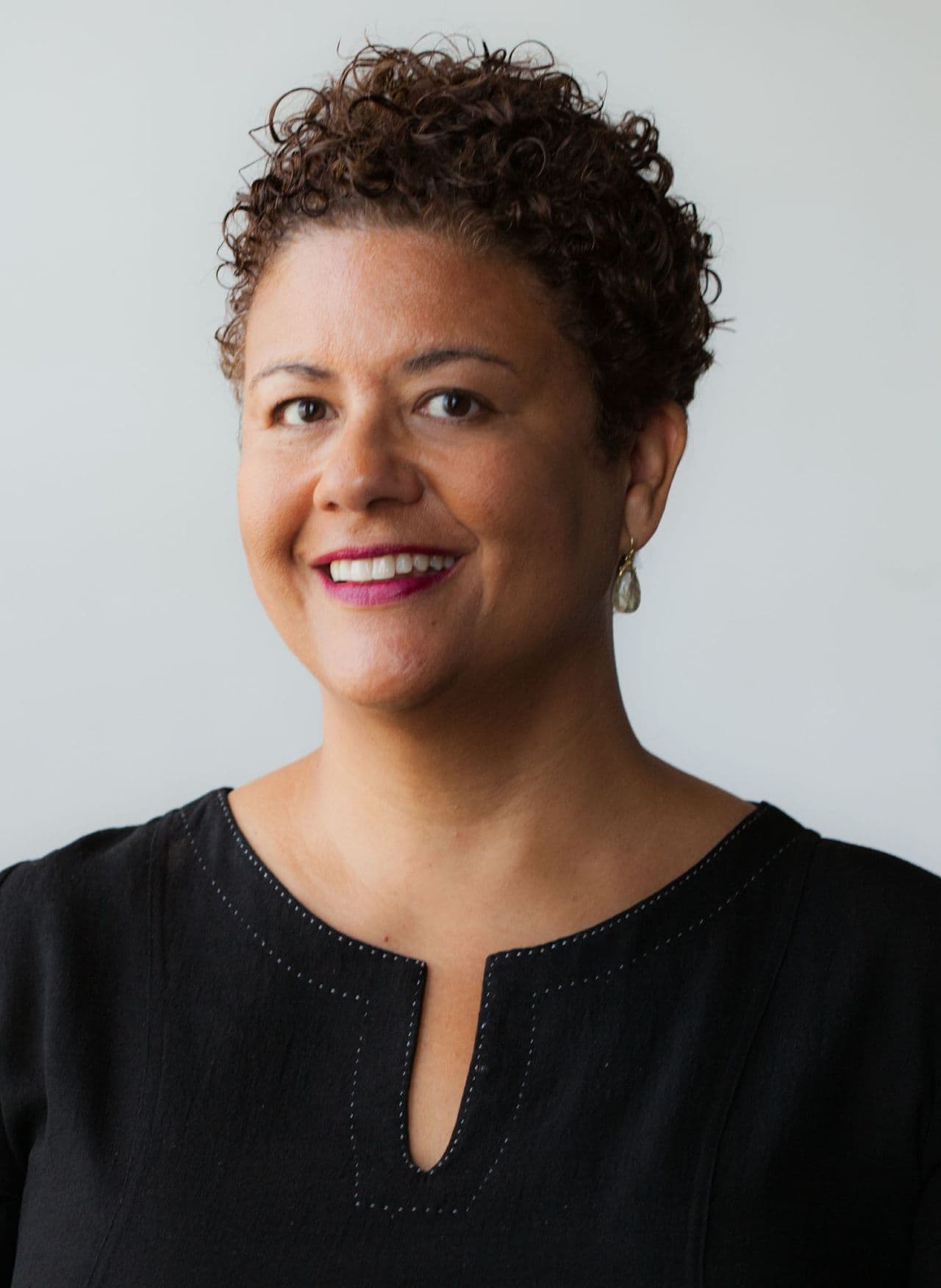Advertisement
Elizabeth Alexander Turns Grief Into Art With 'The Light Of The World'
It is a fact, both heartbreaking and immutable, that most wives outlive their husbands. Even knowing this, it cannot prepare you for the loss of a beloved spouse. But an honest, compassionate conversation with someone who’s walked this road can make you feel less alone when death has put a wide distance between you and the rest of the world.
That is what poet Elizabeth Alexander offers in “The Light of the World: A Memoir.” In a series of connected essays, she has created a gracefully layered portrait of her 15-year marriage to painter and chef Ficre Ghebreyesus, the adored father to their two sons, and shares candid views of her first year after his sudden death from a heart attack in 2012, just days after his 50th birthday.
Alexander is a professor of poetry at Yale, a Chancellor at the Academy of American Poets and the author of five books of poetry and two essay collections. She is perhaps best known for her recitation of her poem “Praise Song for the Day” at President Barack Obama’s 2009 inauguration.
The memoir’s style highlights her poetic background. Essays vary in length, some forming just one paragraph, to allow an observation to stand alone, its wide white page borders inviting you to pause. The book’s slender silhouette belies substantial insight and emotion. This is as much a long prose poem to the power of books and paintings as it is homage to a husband. If you ever doubted the power of art to heal the soul, “The Light of the World” may persuade you to browse some undiscovered poems or walk through a museum.
Elizabeth and Ficre met by chance in New Haven in the mid-1990s. They were both born in 1962, but worlds apart; her in a small family in Harlem, him in a huge extended family in the east African country of Eritrea.
Her route to New Haven was academic, via institutions like Boston University and the University of Chicago. Ficre’s journey was harrowing. At 16, after his family got him out safe of their war-torn nation, he crossed alone through many countries, arriving in the U.S. at the age of 19. By the time he met Elizabeth, Ficre was a painter with a growing following and a chef at his own restaurant. He brought the cultural elements of his travels and native country to his kitchen and studio. In a 2000 brochure for a show, Ficre wrote that painting was how he reclaimed his “sense of place, [his] moral compass, and [his] love for life.”
Through his widow’s recollections, Ficre emerges as a man who revered friends and food and family; who reveled in choosing colors for the walls of their home and the flowers for their gardens; whose impulse to sincerely engage with whomever he met was underscored by his fluency in seven different languages. According to Alexander, Ficre “understood himself as something larger than himself.”
Their marriage seemed lit with joyful, long conversations infused with lyrics by Mahalia Jackson, quotes from August Wilson plays, and countless poems, notably Derek Walcott’s “Oh, Beauty You are the Light of the World,” which gives the book its title. It was a marriage of robust mutual support; as Alexander fondly notes, “Each believed in the other unsurpassingly.”
No matter how it happens, the death of a partner strikes a staggering blow. But when it’s completely unforeseen, absorbing the fact itself becomes an overwhelming task. That Ficre died of a heart attack was especially shocking for Elizabeth; he practiced yoga, cooked only healthy food, was “slim, vital.” One cardiologist theorized that Ficre’s traumatic youth may have damaged his heart in unseen ways.
In the early weeks, to slow down the onslaught of a new, unwanted reality, Alexander lives as much inside a dream world as she does in daily life. The dreams of sleep present a compelling reality (“It was all a terrible mistake”), and awake, she is certain she “can wait forever for him to come back.”
As she and her sons advance together through the year, she ponders different questions, like “Is the goal to no longer see him there? Or to always see him there?” Sometimes she addresses Ficre directly, about her new life, with the baseline longing for that second language of marriage, for shared moments large and mundane. As Alexander writes: “I am the one you want to tell. You are the one I want to tell.”

There are, of course, the practical imperatives, like needing to remove dangerous art supplies like turpentine from Ficre’s studio. There are other decisions about the studio, painful and profound, that can wait, and do wait, until a year after Ficre’s death. Then, Alexander has everything in the studio photographed (each table “a still life of his artist’s practice”), the nearly 900 paintings catalogued and Ficre’s CD collection (his “sonic DNA”) archived to the cloud. There is a continuing thread of decisions large and small, pulling at her; the dilemma of how to move forward: “What am I meant to keep?”
Perhaps one of the most significant questions she explores is “What does it mean to grieve in the absence of religious culture?” Alexander does not practice a particular religion. Some readers may see themselves in her candor about missing a religious structure, but finding a great and comforting faith “in the form of song and art and food and strong arms.”
In one of her lectures at Yale, Alexander noted that art “tries to capture that which we know leaves us.” Here, she has transformed part of her grief into something larger than herself, into an enduring portrait of great resilience and love.
Elizabeth Alexander will be at the Cambridge Public Library on Thursday, April 30 from 7-8 p.m. for a reading of “The Light of the World.”